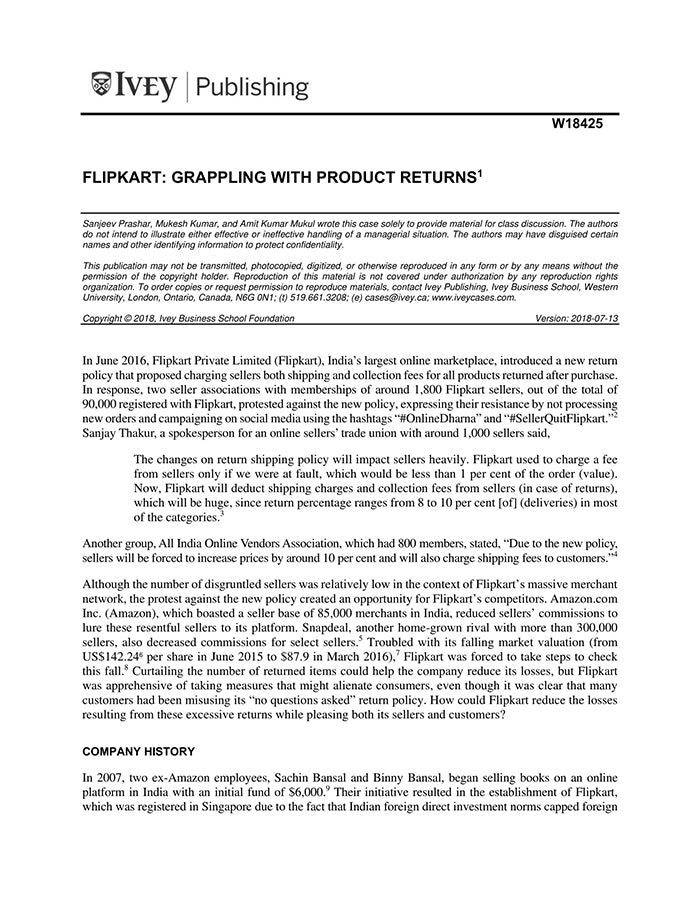Flipkart: Grappling with Product Returns
受取状況を読み込めませんでした
In June 2016, Indian e-commerce giant Flipkart Private Limited (Flipkart) faced a common issue among online retailers: the firm needed to optimize its product return rates to reduce losses caused by returns. Accordingly, Flipkart changed its return policy, including raising the commission fees charged to sellers by an average of 5 per cent. Many sellers resented the policy change, and more than 1,800 led an online protest against Flipkart, which was unprecedented in India. These sellers made their accounts inactive and removed the product listings for nearly 1 million product units. Seeing an opportunity, Amazon India decreased its commissions on various product categories by 2-7 per cent to lure disgruntled sellers to its platform. While its competitors experienced rapid growth, Flipkart struggled to keep the market share it had acquired so far. The company experienced a massive drop in its valuation during fiscal year 2015-16, and had not registered any profit since its inception in 2007. Flipkart had to reduce its losses resulting from a high number of returns without displeasing both of its key stakeholders-sellers and customers. Sanjeev Prashar and Amit Kumar Mukul are affiliated with Indian Institute of Management Raipur. Mukesh Kumar is affiliated with Institute of Management Technology, Nagpur.
【書誌情報】
ページ数:13ページ
サイズ:A4
商品番号:HBSP-W18425
発行日:2018/7/13
登録日:2018/11/6


